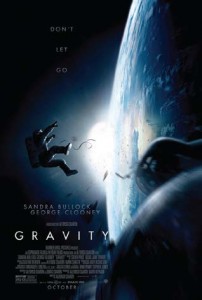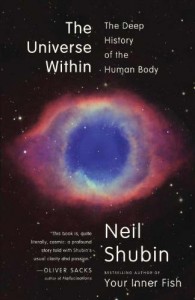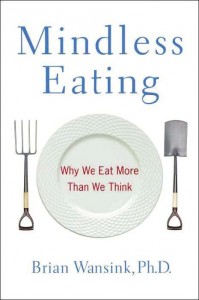MONDAY, 3 FEBRUARY 2014
Gravity is a visually spectacular thriller about two astronauts who become separated from their space shuttle Explorer, after space debris collides with it. There is little character development of Ryan Stone (Sandra Bullock) and Matt Kowalski (George Clooney) and the premise of the film is quite simple - the pair struggle against the harsh environment to make it back to Earth. The idea may be simple but the logistics of making a realistic zero-gravity film are not - at $110 million the budget of Gravity exceeds India’s first mission to Mars that launched last November ($73 million). Watching the movie unfold, you cover your mouth and shake your head as you realise that Dr Stone is having the worst day imaginable. She has to contend with depleting oxygen levels, fires on board the space station, and unfamiliar Chinese characters on the operations dashboard. Oh, and she runs out of fuel. It definitely makes missing the bus look pretty pathetic. Gravity does a great job of portraying the fragility of human life in space and exploring how terrifyingly lonely space travel can be. Perhaps Sandra Bullock’s hair doesn’t float freely in zero-gravity and maybe it’s unclear how the Hubble Telescope (350 miles up), and the International Space Station (230 miles up) in sight lines of one another. However, I think we can forgive director Alfonso Cuarón’s artistic licence this time; he has created a gratifying cinematic experience, which explores the depth of the human condition in a film which is as realistic as it needs to be. Sarah SmithThe Universe Within - Neil Shubin
The Universe Within is exactly as described on its cover: A Scientific Adventure. In fact, it doesn’t really need the qualifier of ‘scientific’ - it is just simply a wonderful adventure. Beginning in the cold expanse of Greenland, the opening chapter follows author Neil Shubin on his first geological expedition; an interesting anecdote but perhaps the book’s weakest moment. The rest of the book is a masterpiece, with each subsequent chapter devoted to a time period, moving from the origins of the universe to the arrival of modern day humans. It is a book which manages to make you feel insignificant and yet simultaneously incredibly important. The early chapters on the universe and our planet bring home just how small we really are, yet Shubin also explains how deeply ingrained we are within the universe. There is a sort of poetry to his words throughout, and in one highlight, which I felt should have been his closing statement, he said “There is something almost magical to the notion that our bodies, minds and ideas have their roots in the crust of Earth, water of the oceans, and atoms in celestial bodies.” This book achieves what it set out to do, tying together all the key events in the universe so far. Perhaps its only flaw is the lack of a timeline, although the clarity of the words throughout means that this is a forgivable omission. All in all, a great read for anyone with a curious mind. Toby McMaster
Mindless Eating - Brian Wansink
If you have ever wondered how we know when we have had enough food, and why we may continue eating anyway, Mindless Eating will give you a clue to the answer. On average, people make over 200 food-related decisions each day, most of which are subconscious. In Mindless Eating, Brian Wansink, Professor of marketing and food psychologist, describes the wide range of experiments conducted in his laboratory-cum-restaurant. His goal is to investigate what external and hidden cues drive people to overeat, and how we can use this knowledge to our advantage, following each chapter with advice on how to alter one’s own environment to promote a healthier lifestyle. However, Mindless Eating is certainly not your typical diet book. Rather, it is a highly insightful exploration of human psychology, and how it might be applied to explain our eating behaviour. Full of entertaining answers to questions from what happens when people are served lunch in a ‘bottomless soup bowl’, to why M&Ms come in so many colours, Mindless Eating is an informative and engaging book shedding new light on a universally popular subject: food. Marinka Steur



